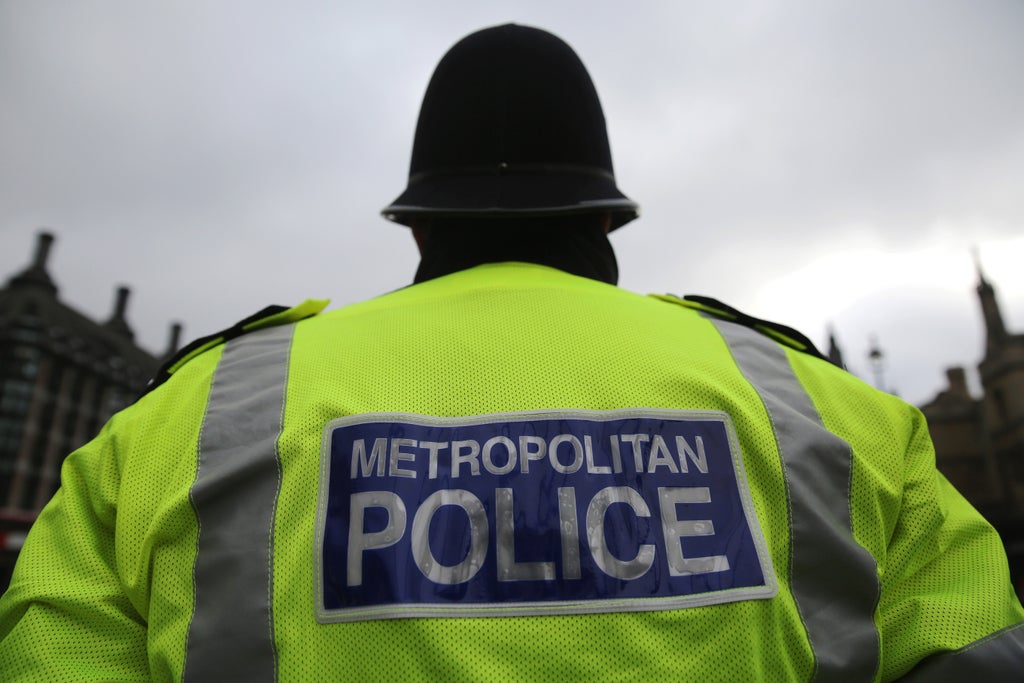
Three Metropolitan Police constables are under investigation for misconduct over their roles in either conducting or supervising the strip-search of a Black schoolgirl.
The student, known as Child Q, was subjected to “traumatic” degradation by officers while on her period after being wrongly suspected of carrying cannabis, according to a safeguarding report which also found that racism “likely played a factor”. She was forced to spread her legs, use her hands to spread her buttock cheeks, and cough.
Staff members at her Hackney-based secondary school called the police after falsely alleging drug possession; the Independent Office for Police Conduct (IOPC) launched a probe in the matter following a mandatory referral by the Met in May 2021.
The watchdog’s investigation is now being finalised and a decision regarding the officers is pending.
IOPC Regional Director Sal Naseem said: “We recognise the seriousness of this case and the concern it has caused in the community following the publication of the Local Child Safeguarding Practice Review into this incident.
“We have now completed all lines of inquiry for our investigation and we are close to finalising our report. We will look to conclude decision making around that at the earliest opportunity.
“The investigation has examined whether legislation, policies and procedures were followed during the strip search of the girl and we have looked at complaints that the girl’s mother was not given the opportunity to be present during the strip search, and that there was no other appropriate adult present. We have also considered whether the girl’s ethnicity played a part in the officers’ decision to strip search the girl.”
According to the report, the impact on the secondary school pupil – referred to as Child Q – was “profound” and the repercussions “obvious and ongoing”.
Family members described her as changing from a “happy-go-lucky girl to a timid recluse that hardly speaks”, who now self-harms and needs therapy.
School staff had wrongly accused the girl of possession of cannabis months before and, despite their mistake, hypothetically threatened the child and her mother with the prospect of expulsion, in this manner: “If she is found with weed/drugs on her she will not be able to continue her place with [the school]”.
The basis for the school’s initial allegation was that Child Q appeared to be “intoxicated”, which, her mother explained, was because she’d been up until late the night before studying. They also expressed concern about cannabis possession because another student, known to the girl, was excluded for drug possession months before.
Scotland Yard has apologised and said the incident “should never have happened”.
Councillor Anntoinette Bramble, deputy mayor and cabinet member for Hackney Council’s Children’s Services, and the mayor of Hackney, Philip Glanville, said they were “appalled” by all aspects of the review.
They have asked for a report in six to nine months on progress made regarding the review’s eight findings and 14 recommendations.
These include calls for the Department for Education to make more explicit reference to safeguarding in its guidance on searching, screening and confiscation, and for police guidance on strip-searching children to clearly outline the need for a focus on safeguarding.
The review found that school staff deferred to the police’s authority and “should have been more challenging” and all staff members involved remain in post, The Independent understands.
Condemnation of the school and police has been swift from concerned members of the public, campaigners and politicians.
A Black Lives Matter UK spokesperson said the review’s recommendations will not prevent similar incidents happening again.
“It is a consistent practice of the police to violate and assault Black people – including Black children. This is their modus operandi,” they said.
“The horrific strip search of a Black girl at school is a clear example of why police should not be in places of education. While politicians have recently called for more police officers to be stationed in schools across the capital, children are being traumatised in spaces that should be safe,” they said.
“With each story of degradation and brutality towards Black people at the hands of police, our resolve to abolish this violent institution only becomes stronger. Abolition makes the case for itself.”
Ebinehita Iyere, founder of Milk Honey Bees, told The Independent: “From a structural level, Black girls are being let down. They are criminalised through the British education system and the case of Child Q has further amplified that reality.
“Many Black girls will read, hear or have experienced things similar to her case. For too long, they have been overlooked and erased by state institutions, creating a situation that renders their childhood as invisible, further adultifying and exposing them to harm. Through Milk Honey Bees, I help to create a safe, nurturing space for our girls.
“Society must listen to and protect Black girls. We need to create change within our systems, but this means that Black girls need to be on every agenda to ensure the erasure that has taken place is eradicated.”
African, Caribbean and Asian Lawyers 4 Justice, a campaigning group of lawyers and judicial experts, said that Child Q’s family may wish to consider a number of legal courses of action for equalities, safeguarding and human rights breaches, for example under Articles 3 and 8 of the European Convention on Human Rights (ECHR).
There may be grounds for a civil claim against the police and potentially Judicial Review regarding action on the school and local authority for unlawful actions, they added.
Zita Holbourne of the collective told The Independent: “Our thoughts are with Child Q and their family and we send our solidarity for justice and healing from the trauma experienced.
“This situation is horrific on multiple grounds and a number of institutions are answerable and accountable including the police, school, local authority and the Department of Education.”







